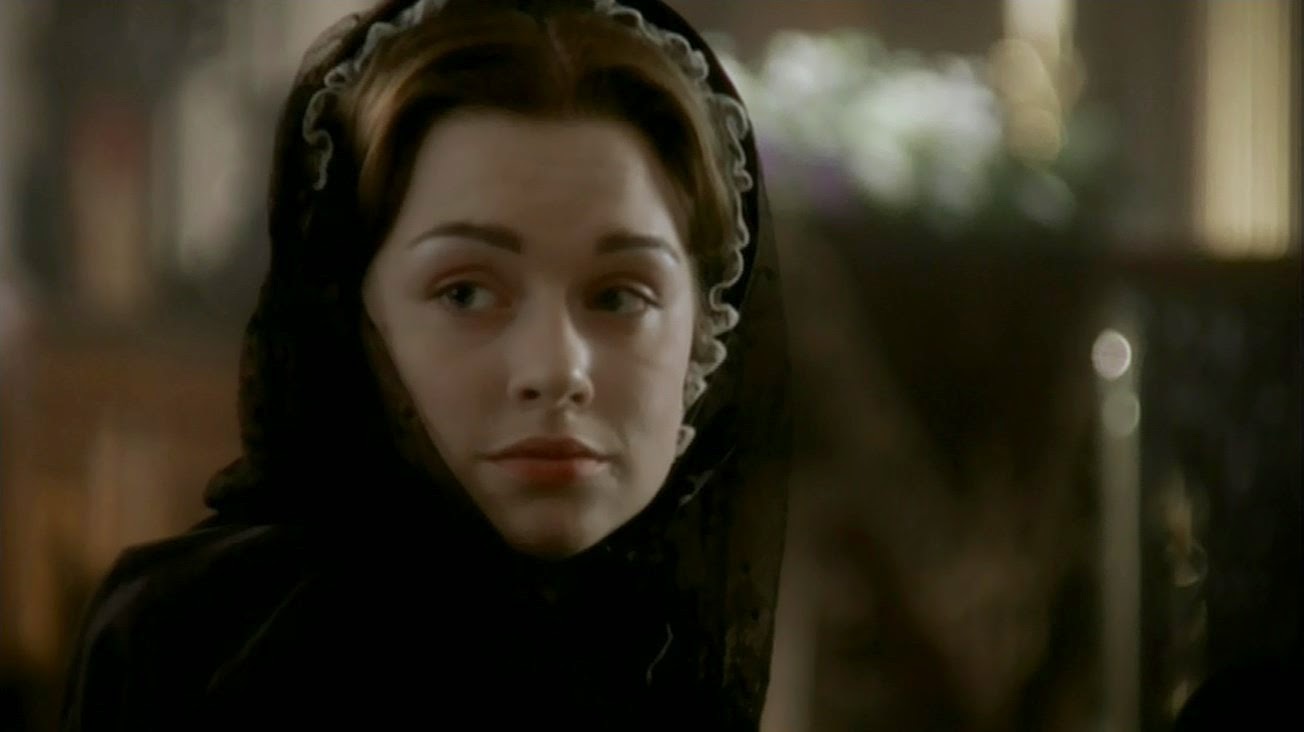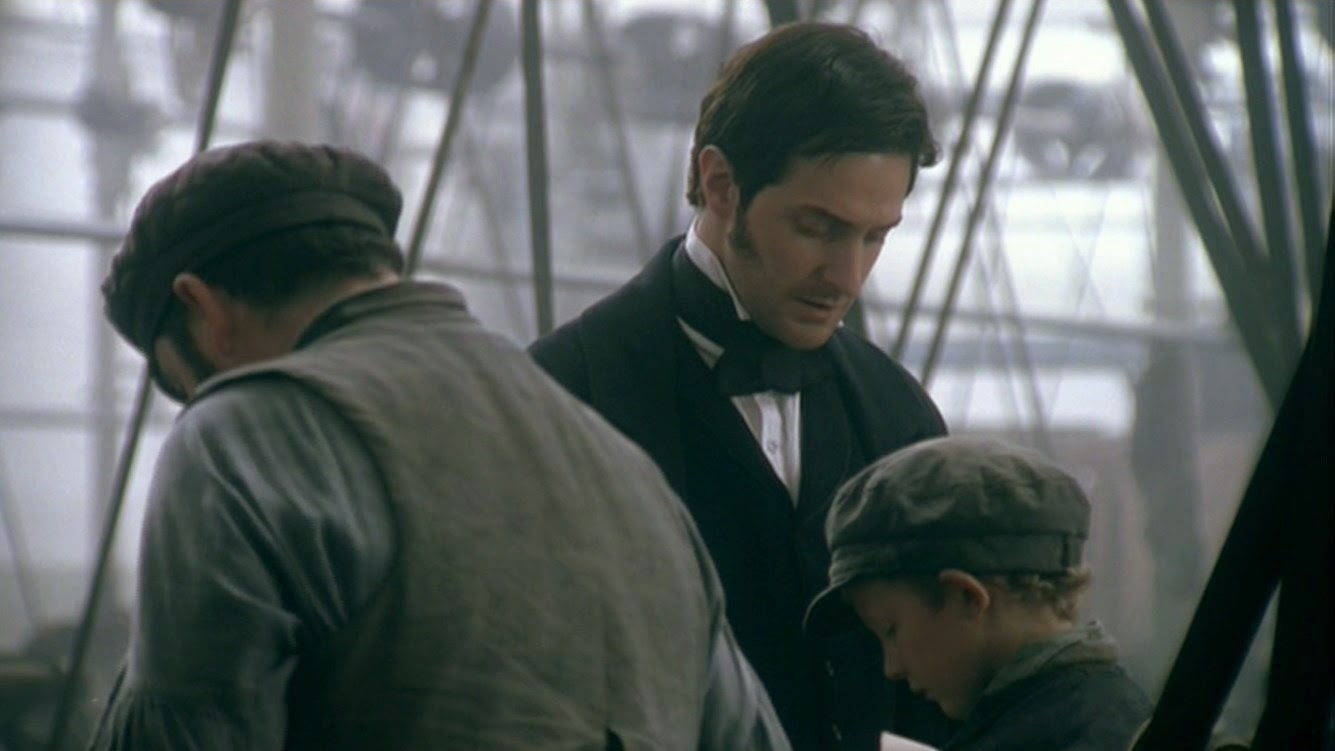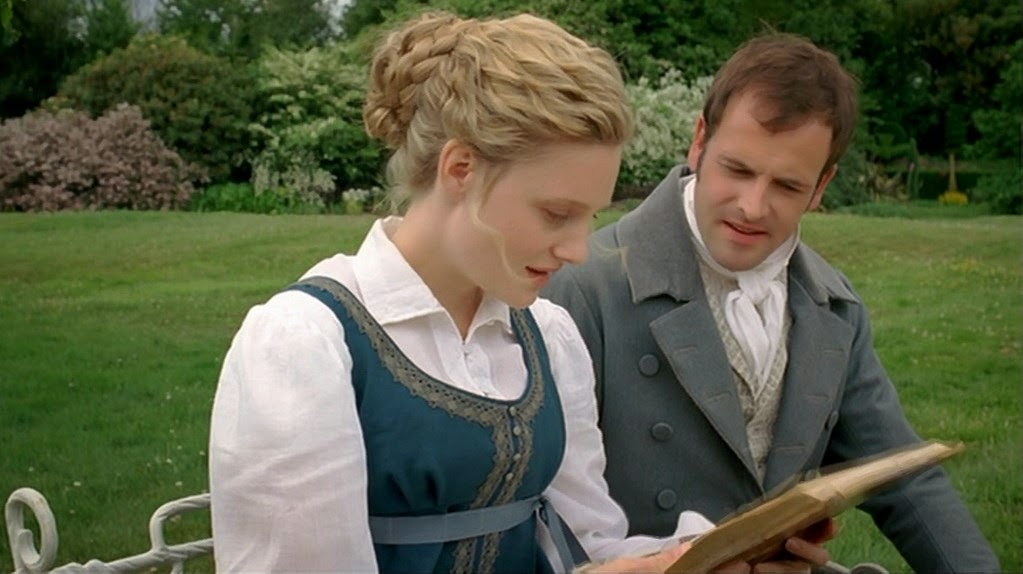Along with Anne of Green Gables, this was the film that first deeply introduced me to the entire world of period drama. (In fact, it was a long time before I even realized AoGG was a period drama, it was so deeply ingrained in my subconscious. ;))
Okay, rabbit trail. Let us return to S&S.
Since first seeing it, I’ve seen the 1981 and 2008 adaptations multiple times (and come to love them both dearly) so I can’t honestly say this is my tippity top favorite in the S&S department, but it is quite simply un-ignorable (that very definitely isn’t a word, but my overactive spellcheck isn’t flagging it, so I’m going to leave it ;)).
Here’s the official, excellent summary: “Emma Thompson, Alan Rickman, Kate Winslet and Hugh Grant star in this captivating romantic comedy that swept the Ten Best Lists and was named the Best Picture of the Year by the Golden Globes. Based on Jane Austen's classic novel, Sense and Sensibility tells of the Dashwood sisters, sensible Elinor (Thompson) and passionate Marianne (Winslet), whose chances at marriage seem doomed by their family's sudden loss of fortune. Rickman, Grant, and Greg Wise co-star as the well-intentioned suitors who are trapped by the strict rules of society and the conflicting laws of desire.”
 |
| (Doesn't this remind you of a mantilla? I love it.) |
Off the top of my head, the biggest plot differences here between the book and film are: the omissions of John and Fanny’s son, Mrs. Ferrars, and also the elder Miss Steele; Edward doesn’t visit Barton Cottage, and (largest of all) Willoughby doesn’t come to Cleveland when Marianne is ill. Technically you can get along all right without the young Dashwood heir and also Mrs. Ferrars and Miss Steele, but I do think the decision to omit Willoughby’s visit is unfortunate as it really finishes his character arc and adds depth to his and Marianne’s entire story. The hilltop scene near the end does provide some resolution, and I think all in all it fits with the tenor of the film, but it’s a good discussion point.
As to the content: there’s not a single questionable scene, so that’s pretty amazing.
When it comes to the casting I’m rather conflicted. I honestly have to confess I’m not bonkers about it, particularly in a couple major instances (i.e. Edward, etc), yet still everyone fits together so incredibly well that somehow I’m always reconciled by the end of the film. It all just becomes this beautiful thing.
(Also, the soundtrack is seriously epic in the world of period drama soundtracks.)
Three points that popped out at me recently are: #1 -- *SPOILERS* With Edward's proposal: (besides being romantic and satisfying etc.), I realized afresh just how funny it is when the rest of the family gets all flustered and confused, seeing their steady, staid, self-controlled 'big sister' finally breaking down into happy tears. They don’t know what to do and it’s hilarious. ;)
#2: One thing that had always puzzled me a little at the end was how Edward and Elinor come out after Colonel Brandon and Marianne, and with Elinor in so much simpler of a dress. As I understand it, etiquette decrees the older sister would have precedence in such a situation and (as the bride’s family would be making/providing the wedding dresses) their attire would be similar. And then E&E don’t have a carriage either. As I said, this bothered me until (and thank you to my sister on this!) I realized it was indeed accurate to the book and wasn’t a double wedding as in P&P (which is book accurate). They are, in fact, sticking to the story line in S&S where the Colonel and Marianne get married about a year after E&E. (And this all might seem incredibly obvious, but personally it was a tremendous relief to figure out. ;D)
#3: The moment with Margaret up in the tree house, and Marianne and Mrs. Dashwood in each other’s arms, laughing and crying with the fresh blue and green all round them -- and then the music swelling out with intense joy – may very well be my absolute favorite moment in the entire film. :)
Those ending scenes just sweep you off your feet: the colors, the landscape, the sweetness – it’s breathtaking.
So, in conclusion, I highly recommend this as a beautiful film, an excellent introduction to period dramas in general, and definitely required viewing for all good period drama lovers. ;) Dreamy, sweeping, golden, and epic, it’s lovely and a thorough classic!
Tell me! Have you seen this version of S&S? Do you have a favorite adaptation?






































.jpg)































